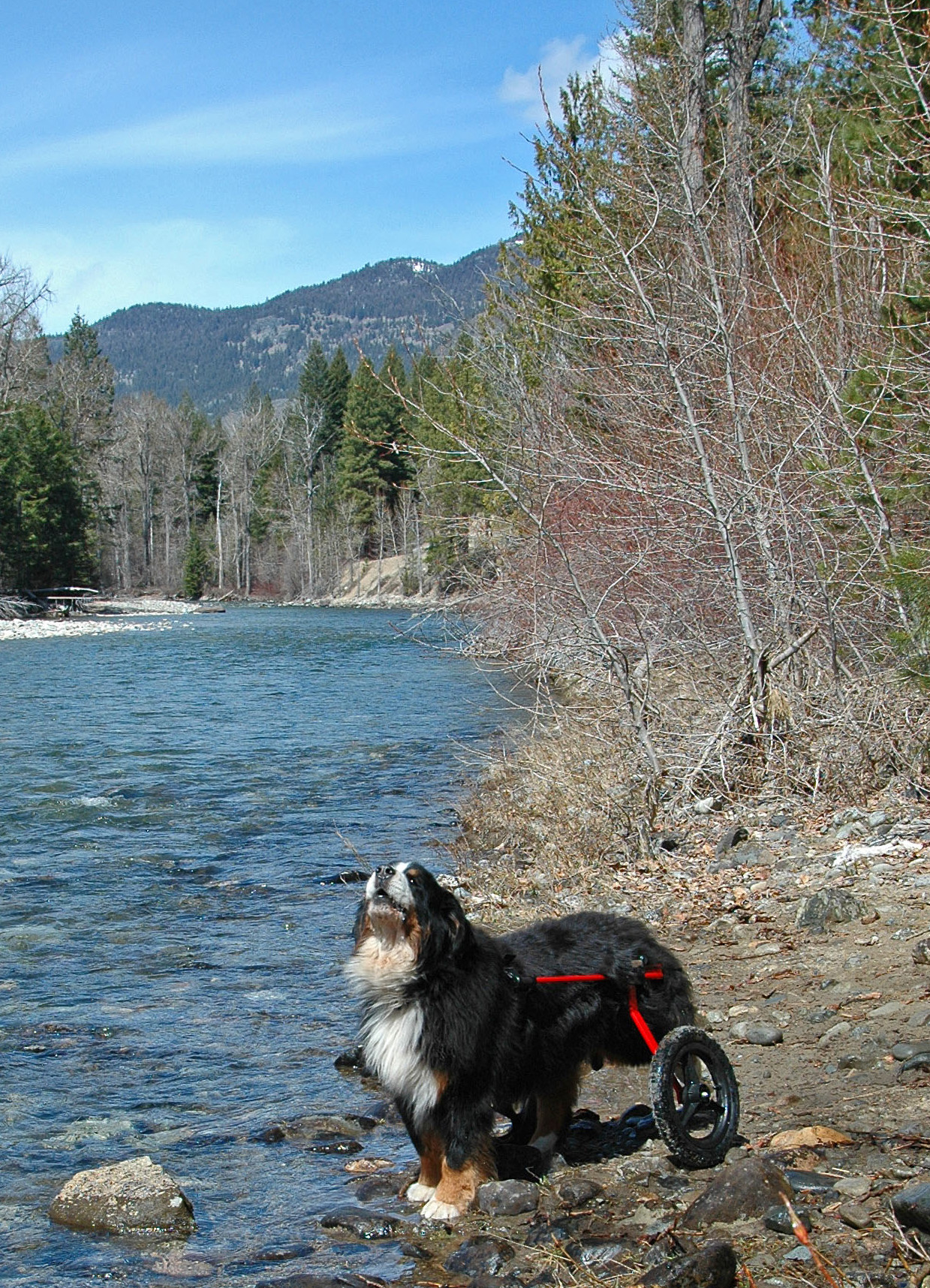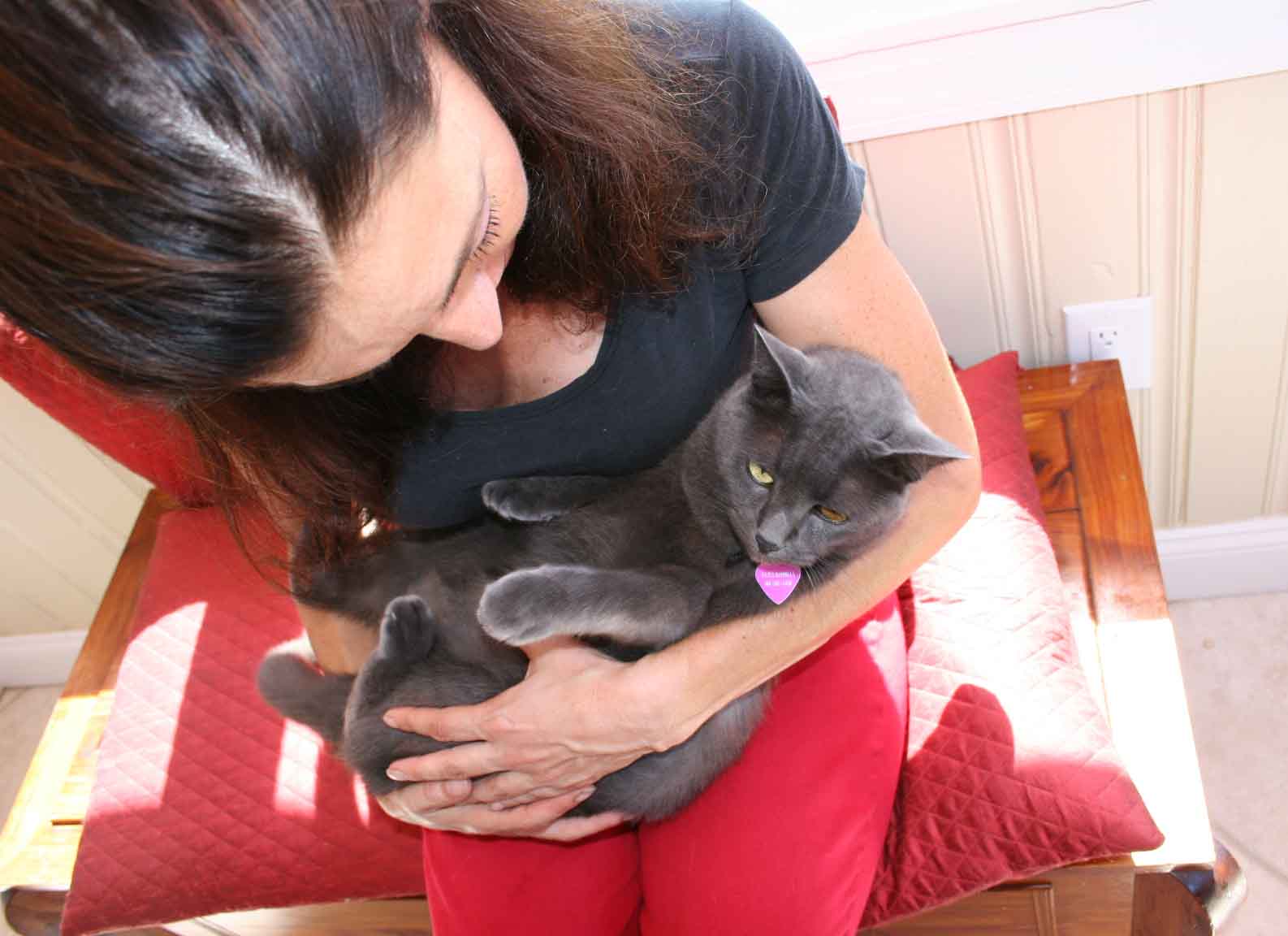5 Human Feelings That Affect our Pets
A friend of mine called the other day from Los Angeles and said she wanted to set up a phone consultation for her dog. I said “you don’t need to”. She said “why not?” I said “because I already know what is going on.” (Not that I’m that psychic mind you – but as an Animal Communicator I’ve seen this a million times). I continued “you’re calling me because your dog is depressed.” She agreed. “She came to you depressed and fearful and you are depressed at times so the two of you are a great mirror and commiserate when you’re depressed. When you’re not depressed, you spend the rest of the time feeling sorry for her past. Therefore, you are falling into what I call default behavior.” I told her to call me in a few days if she still wanted a session.
We all fall into default behavior. We don’t allow the moment to exist. I explained to my friend that at that point, that dog was lucky. In fact, it had been lucky for all the years they were together. It no longer had the sad circumstances it had before and in fact, she had a great life. The dog had a kid and a cat to look after, my friend loves her – it doesn’t get any better.
When I saw her in person weeks later I asked about the dog. She said the switch was overnight. Once she acknowledged that this was a great life NOW, the dog could enjoy life.
Not everything is that quick, but really it could be. When we default into certain feelings, we allow the animal to ‘get away’ with certain behavior that is not serving the harmony of the household. If we continue to feel sorry for someone or stay hurt by something, we are not allowing them to be all that they can be.
This is not to say that we need to be in denial, it’s the opposite. By staying in the past feelings, we are actually denying them the present (and who is better than the present than animals?!) Sometimes you already know the painful circumstances that the entire household is clinging to. And if you don’t, it’s a good time to call in an Animal Communicator. But meanwhile, acknowledging the circumstances is important, but also acknowledging how great things are NOW is vital. They don’t have to stay in feelings. Feelings are like waves at the ocean, they come and go. (We all tend to forget the go part.) Sometimes giving it a date to let it go – like we can all feel badly about this until next Friday is a great way – you all might get bored by Tuesday and be on with the day.
The following are typical examples of things WE ALL DO:
1. Feeling guilty about going out of town or being away all day.
If guilt was measured in dollar amounts and put into a bank account, it could give the Vatican a run for its money. And there’s no place better than to do this with our animals!! There are lots of ways around this. First of all, you have to do what you have to do (as in j.o.b.) in order to afford this dog/cat/bird/goldfish/horse the life of luxury he/she gets to lead. Secondly, you can say everything with a positive tone. “I will be home at 4:00 and we get to go on a walk.” While you are away, replace the guilt with the feeling of looking forward to connecting with your friend. Believe it or not they pick up on stuff when we are away and what would you rather send, something good or bad? Make your vacations a vacation for them, they get to eat all that stuff I would never feed you with the housesitter, etc. It’s fun, all fun, they respond to an uplifted spirit.
2. Feeling guilty about adding a baby or another pet to the household.
Life is life. While your dog/cat/bird/goldfish/horse may have been the baby before and a real live baby is coming into the home, you may want to include them – that you need their help – employ them. They can always use an extra job. They can be in charge of the safety or training of the new animal….etc. By feeling guilty, you are setting up room for them to be resentful and act out.
3. Feeling sad about an animal’s past.
Here’s a big one. Again, the example at the top is truly how quickly we can help them let it go. If that doesn’t do it, as I said, let them download with an Animal Communicator. Sometimes just getting their story “off their chest” so to speak allows freedom. In addition, having it released from their muscle memory by a canine massage therapist, a cranial sacral practitioner, acupuncture and/or chiropractic, may be the best money spent. Sometimes bad memories are stored in their bodies and it is our job to help them find the therapy to get it out. Also the word “rescue” has such a negative, sad, forlorn vibration to it. If you were to close your eyes and think of the word rescue, it automatically brings up unwanted feelings, quite literally. So start referring to the day that you adopted your friend as the “lucky day”. Encourage people that are in the rescue world to start finding other words like “sanctuary”. Nothing leads to bad behavior faster than the word rescue. We feel sorry for them and let them get away with things we wouldn’t let a kid do. There still have to be boundaries. Chances are good that if you are a caring guardian and are reading a magazine like this to learn to be better, your animal is already on the road to a charmed life. So just start expressing and enjoying it more!! But don’t forget boundaries and training.
4. Staying mad about an episode in the past.
This can create the never ending cycle of really bad behavior. Animals pick up on the pictures words and feelings of their guardians very quickly. When we hang on to an episode that infuriates us, unfortunately, we are creating a billboard for them to replicate the behavior. They are not necessarily picking up on our feelings about the event; they just see the instant replay in our mind and think they need to do it again. If your cat isn’t using the litter box and you’ve run blood work and you’re quite sure the problem is behavioral, rather than to cling to the image, try to sort out what they are ‘pissed off’ about while at the same time, picture them using the litter box. I know this is difficult but you can’t let your mind slip – not even at work. Forgive the behavior and send the picture you want.
5. Being fearful of how the animal will behave.
Again, this is billboard material. And when we get a little panicky about something – i.e. our dog gets leash aggressive and we don’t want to see any of the neighbors, unfortunately, we are setting them up not only in our mind but in our body language and the tone in our voice. At this point the time and money spent on a good dog trainer is worth its weight in gold. You can’t afford the fear and must remember, you are in charge – it is your home, in fact at that moment, you need to provide them with security. Fake it until you make it down the road the first day and then call a dog trainer.
I am not pointing the finger at anyone. Over the years I have made all of these mistakes with dogs, cats, horses, etc. What I have found in life is there are no mistakes only lessons. Our animal companions offer these so graciously!!



